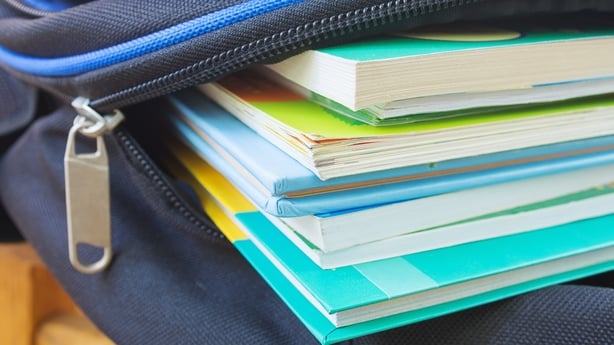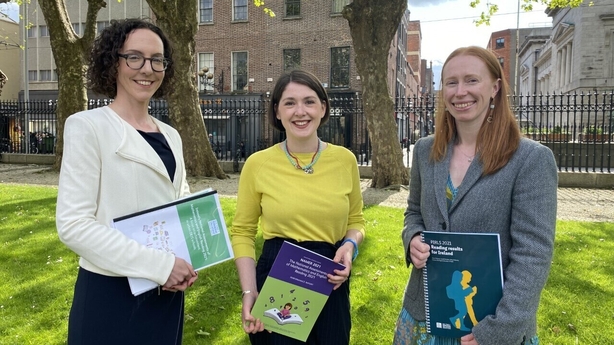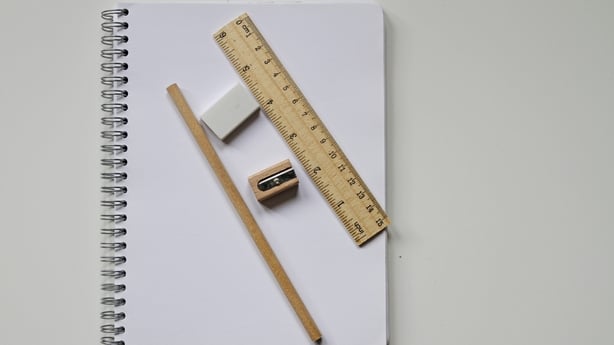Ireland's 10-year-olds continue to outperform most of their peers internationally when it comes to reading, according to a major international report.
The Progress in International Reading Literacy Study (PIRLS) is one of two reports published today, both of which present a very positive picture of achievement among primary school children here.
In literacy tests undertaken by 300,000 school children across 57 countries, the scores achieved by Irish pupils place Ireland among a small number of the highest achieving countries.
While researchers have urged caution in the interpretation of the outcomes - because Covid school closures led to unevenness in the timing of tests - they say they are reassured by the fact that these latest scores are close to those achieved in similar tests carried out in 2016.
In 2016 Irish 10-year-olds outperformed pupils in all other EU and OECD countries and internationally just Singapore and the Russian Federation scored significantly higher.
Commenting on the latest outcomes in what is the world’s largest comparative study of reading achievement among children, Irish researchers said it was reasonable to conclude that reading achievement has remained stable since then.

The second report is the National Assessment of Mathematics and English Reading (NAMER), which is an Irish study carried out every six years for the Department of Education. It gauges literacy and numeracy levels among second and sixth class pupils in order to inform the development of numeracy and literacy policies.
The latest NAMER report has also found that literacy and mathematical ability among pupils has remained stable, although it too has warned of a 'Covid caveat' in the interpretation of its results.
Research for both studies was carried out by separate teams at the State’s Education Research Centre (ERC), and both sets of tests were administered in 2021.

More than 4,600 children took part in testing for the study. However, due to Covid school closures they were tested six months later than pupils in most other countries, at the start of fifth class instead of towards the end of fourth class.
An ERC report on the Irish findings in PIRLS states that the fact that Irish children were on average six months older means that they "probably performed somewhat better", but it goes on to say that "it is unlikely that the difference would have been very extreme".
Ireland finds itself in second place internationally in PIRLS 2021 with only one region, Singapore, outperforming students here.
While Ireland’s 2021 placing and score is even higher than it was five years earlier, the report warns that neither of these outcomes can be relied upon as a like for like improvement. However the report finds that it "seems likely that reading achievement has at least remained stable since 2016".
This pattern is mirrored in the NAMER report, which finds that its latest outcomes mirror those of tests administered in 2014. More than 10,000 pupils from 188 primary schools were tested in literacy and maths as part of this second study. However the 2021 tests were reduced and adapted as a result of pandemic constraints.
Outlining the findings of both reports to journalists, researchers said they presented a very positive picture that parents and teachers should see as greatly reassuring.
DEIS Schools
The NAMER report placed a specific focus on performance in disadvantaged schools and here too there is some good news.
There was widespread fear that the pandemic and particularly school closures would damage academic attainment among children from disadvantaged backgrounds.
However, this research finds no significant fall in performance among pupils attending schools serving the State's most disadvantaged communities.

It finds no significant improvement either though, and the substantial gap between the performance of children in DEIS Band 1 (the most disadvantaged schools) and non DEIS schools continues.
Two out of every five children in second class in the most disadvantaged urban schools are classed as "low reading achievers", and nearly half of all sixth class pupils in those schools are "low achievers" in maths.
However the study notes that a significant proportion of children attending DEIS Band 1 schools are high achievers: 25% children in second class, and 22% in sixth.
Reading
The PIRLS study has uncovered one very positive outcome from the pandemic.
According to information provided by their parents, during the school closures their children spent a lot more time reading books and other material. Researchers say this might help explain their strong performance in the tests.
However, when pupils returned to the classroom the proportion of time they spend reading fell, even to below 2016 levels. And compared to their 2016 counterparts they also reported liking reading less.
Wellbeing
There is ongoing significant concern about the impact of the pandemic lockdowns on the mental health of children, and contextual data gathered from children as part of the PIRLS study supports that concern.
Compared to their counterparts in 2016, pupils in 2021 were more likely to report feeling tired upon arrival at school. 21% said they felt tired upon arrival "every day" and a further 24% "almost every day".
Hunger levels also increased, although only marginally. In 2021, 11% of pupils said they felt hungry on arrival at school "every day" and a further 11% "almost every day".
"Feeling either tired or hungry every day was associated with lower mean reading achievement", the study noted.
"Bullying behaviours were also more commonly reported in Ireland in 2021 than in 2016", the report states. The largest increase relates to reports of being made fun of or called names and being physically assaulted.
"The latter is a particular cause for concern, with 16% of pupils in 2021 reporting that peers hit or hurt them on at least a monthly basis", it states.
The concludes that "it is possible that an increased prevalence of bullying could reflect difficulties with social interaction following the lockdowns."
Gender
The NAMER report found that girls outperformed boys when it came to literacy, while boys did better than girls in mathematics. This is consistent with international research.
Irish girls also outperformed boys in the literacy tests administered here as part of the study. However, the gap between girls and boys here was found to be significantly narrower than the average gap internationally.
"The gender gap in Ireland is relatively small", the study found, "and explained largely by girls’ very strong performance in reading fiction and deploying more complex skills."
PIRLS is a project of the International Association for the Evaluation of Educational Achievement (IEA).






